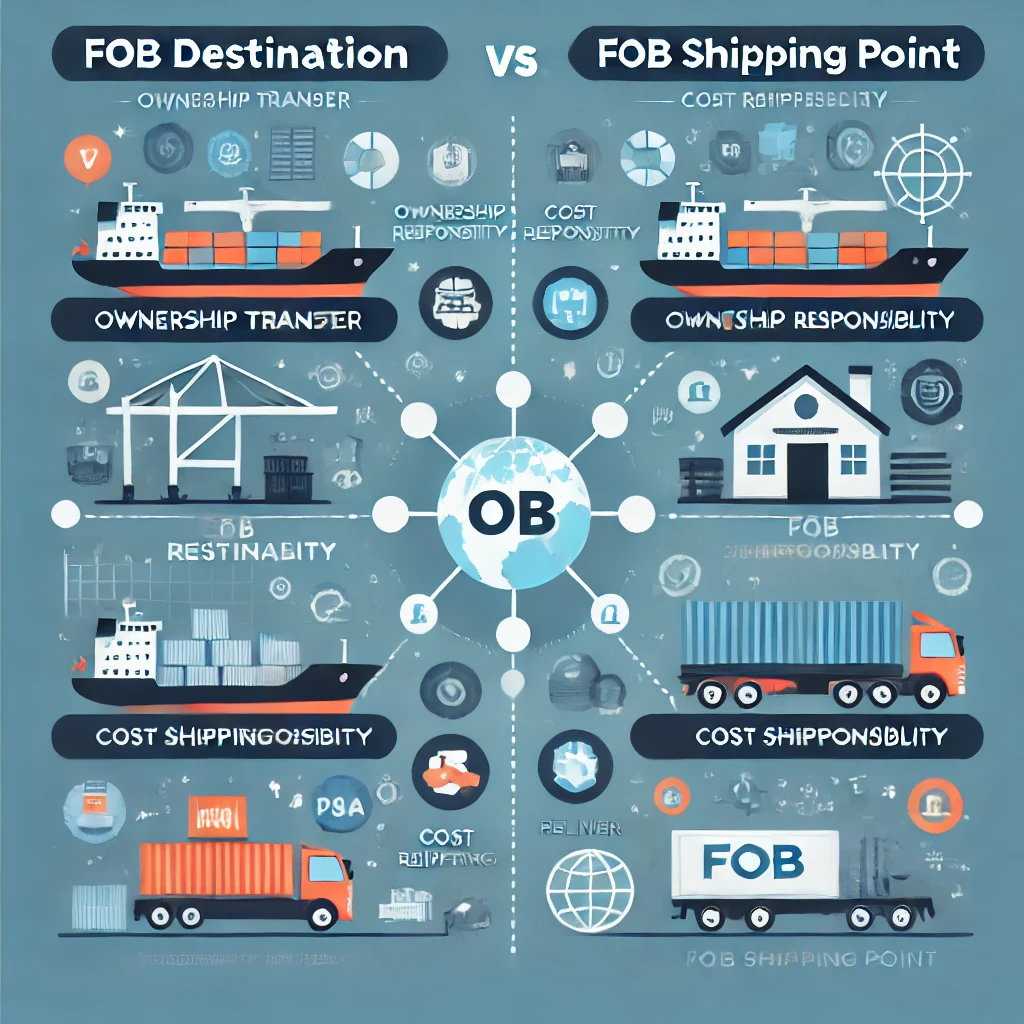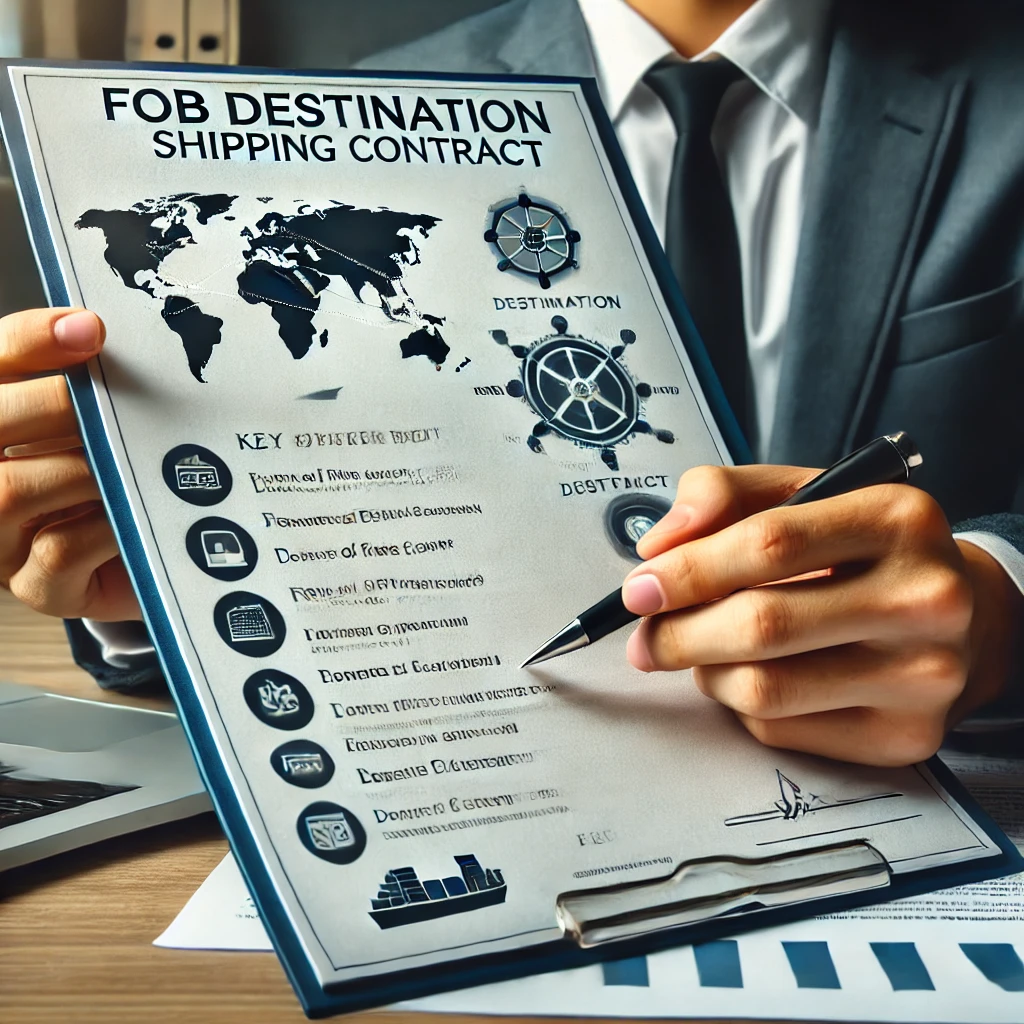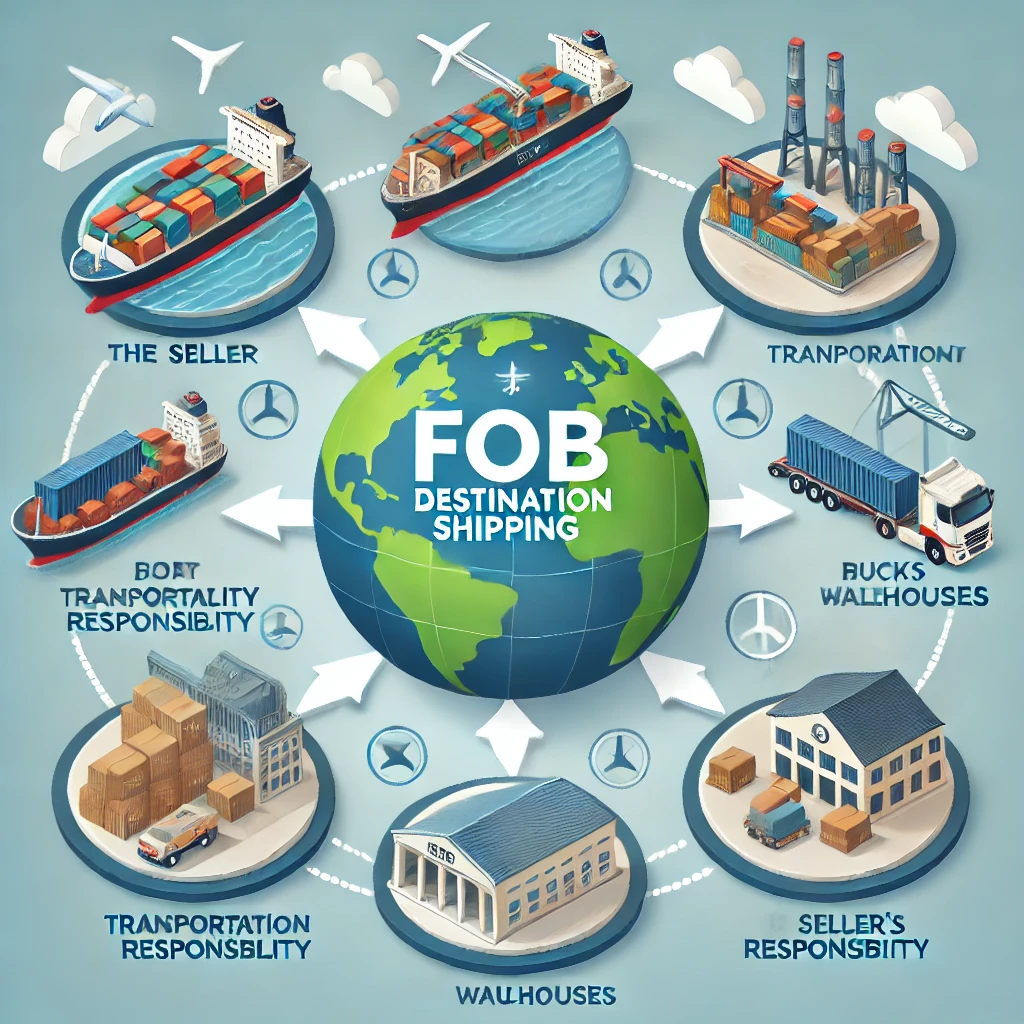Exploring FOB Destination Meaning in Detail
This article provides a detailed explanation of FOB Destination, highlighting its key features, practical applications, and relevance in modern trade.

What Is FOB Destination?
FOB (Free on Board) Destination is a shipping term indicating that the seller retains ownership, responsibility, and risk of the goods until they reach the buyer’s specified location.
Key Responsibilities Under
Party | Responsibilities |
Seller | Covers transportation costs, ensures safe delivery, retains risk until the goods reach the buyer’s location. |
Buyer | Takes ownership only after goods arrive at the agreed destination. |

Key Features
1. Seller Bears Shipping Costs & Risk
- The seller is responsible for all freight charges and handling fees.
- The seller retains risk until the goods arrive at the buyer’s location.
2. Transfer of Ownership Upon Delivery
- The buyer only assumes ownership once the goods are received.
- Any damage or loss during transit is the seller’s responsibility.
3. Common in Domestic Trade & Large Orders
- Used in business-to-business (B2B) transactions, retail, and bulk orders.
- Helps buyers minimize financial risks related to transit.
4. Simplifies Buyer’s Logistics
- Buyers don’t have to worry about shipping coordination.
- Ideal for companies with limited logistics capabilities.
5. Contract Terms Determine Additional Costs
- Some contracts may include insurance or special handling fees.
Practical Uses of FOB Destination
1. Retail & Wholesale Distribution
- Companies purchasing large inventory prefer FOB Destination to ensure safe delivery.
2. Online & E-Commerce Businesses
- Buyers benefit from risk-free shipments until the goods are received.
3. Industrial Equipment & Manufacturing
- Used for shipping machinery, bulk goods, and fragile products.
4. Corporate Procurement
- Large corporations choose FOB Destination for predictable costs and delivery control.

Advantages and Disadvantages of FOB Destination
Advantages | Disadvantages |
Minimizes risk for the buyer – The seller is responsible for safe delivery. | Higher costs for sellers due to transportation and liability coverage. |
Predictable cost structure – No unexpected shipping fees for the buyer. | Limited buyer control over carrier selection and shipping timeline. |
Ideal for bulk orders and high-value goods. | Slower delivery times if the seller chooses lower-cost freight options. |
FOB Destination vs. FOB Shipping Point
Incoterm | Seller’s Responsibility | Buyer’s Responsibility |
FOB Destination | Pays for transport, assumes risk until goods arrive. | Takes ownership only upon delivery. |
FOB Shipping Point | Responsible only until goods leave the seller’s facility. | Assumes risk and cost once goods are in transit. |

When to Use?
- Best for buyers who want risk-free shipping and cost predictability.
- Ideal for large orders, retail distribution, and corporate procurement.
- Recommended for businesses without in-house logistics expertise.
- Not suitable for buyers who prefer to manage transportation themselves.
Conclusion
FOB Destination is a buyer-friendly shipping term ensuring that ownership, costs, and risks remain with the seller until the goods arrive at the buyer’s location. It is commonly used in bulk trade, retail, and corporate supply chains.
Understanding when to use FOB Destination and comparing it with other Incoterms helps businesses optimize shipping agreements, minimize risks, and improve cost efficiency. Whether you are a manufacturer, importer, or retailer, choosing can provide greater control over procurement and logistics operations.
